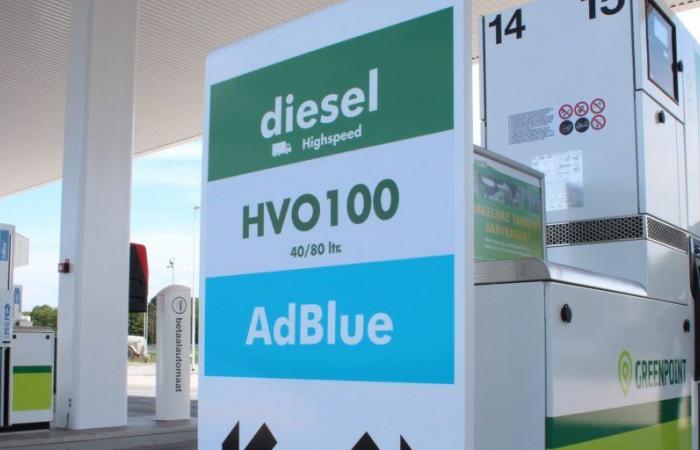In a context of slowing consumer adoption of electric vehicles, thermal engines still seem to have a bright future ahead of them. Especially with the emergence of new fuels, like this 100% renewable E85 that we told you about at the end of April.
But if for the moment Europe is still taking time to legislate on biofuels, German service stations recently saw the arrival of a new name on the guns: XTL. QSo what is this new fuel? This is HVO100, a biodiesel made 100% from certified and sustainable residues and waste. A fluid that is already found in Spain or in Scandinavian countries.
100% pure form
If until now Germany only authorized biofuel blends up to 7% in diesel, since May 1, 2024, HVO100 has been officially authorized in service stations. Even if it will only arrive gradually throughout the territory.
In detail, HVO means Hydrotreated Vegetable Oils, meaning that it is a vegetable oil converted into hydrocarbon by catalytic reaction with hydrogen (hydrogenation). It is through this process that hydrogenated vegetable oils can be mixed, as with biodiesel, with diesel fuel. An HVO20 will be composed of 20% HVO and 80% fossil diesel. As you will have understood, in the case of HVO100, it is offered in 100% pure form. We also talk about paraffinic diesel.
Cleaner and more expensive
Due to its composition, HVO100 as it is already on sale in Germany promises to be particularly interesting from an environmental level. Indeed, in terms of CO2 emissions, it emits up to 95% less than a traditional diesel. On the other hand, and the criticism was made by the Federal Ministry of the Environment, This HVO is only sustainable when the raw materials that were used in its production are also sustainable. Furthermore, it is impossible to prove a posteriori which raw materials were used in the manufacture of fuel. As for the price of HVO100 biodiesel, it is higher than that of conventional diesel, around 10 to 20 cents per liter.
For all diesels, but be careful…
Particularly suitable for company fleets, which will be able to continue to use diesel vehicles while reducing their CO2 emissions by using this HVO100, care must still be taken.
Because if in theory this biodiesel can be adapted to all diesel vehicles, at least modern, it is still better to wait for validation from the manufacturer. In any case, this is what the German automobile club ADAC advises, which has drawn up an initial list of compatible vehicles, from Audi to Volkswagen, including Citroën, Peugeot, Renault, Dacia, Skoda and other Toyotas.





